Solving mock tests is an essential part of Class 10 board exam preparation, but its real value lies in what comes after—self-evaluation. Many students complete mock tests without taking the time to review their mistakes, which means they miss a major opportunity for growth.
At Deeksha Vedantu, we place strong emphasis not just on attempting mock papers, but on helping students learn how to reflect on their performance and use those insights to improve. This guide will show you step by step how to self-evaluate your Class 10 mock tests effectively.
Why Self-Evaluation is Crucial for Class 10 Students
Going Beyond Just Solving the Paper
Solving mock tests allows you to simulate the exam environment. However, without reviewing your answers, you’re not gaining the full benefit. Self-evaluation helps you understand why you made certain mistakes, where your understanding is lacking, and how you can improve before the real exam.
How Self-Evaluation Builds Exam Readiness
Self-evaluation develops core skills like self-awareness and exam strategy. It allows you to track your progress, identify recurring mistakes, and build a plan for targeted improvement. These skills are just as important as mastering the syllabus.
Steps to Self-Evaluate Your Class 10 Mock Tests
Step 1: Time Yourself Like the Real Exam
To get the most accurate results from a mock test, you must treat it like the real thing. Find a quiet space, set a timer for the exact exam duration, and avoid using notes. This will give you a realistic sense of how you perform under pressure.
Step 2: Check Answers Using the Official Marking Scheme
After completing your test, compare your answers with official board marking schemes or teacher-provided solutions. Be objective when assigning marks. If your method or explanation is unclear or incomplete, deduct marks even if the final answer is correct.
Step 3: Analyse Mistakes and Categorise Them
Go beyond marking answers right or wrong. Identify the type of mistake you made: Did you misunderstand the question? Was it a careless error? Was the concept unclear? Categorising your mistakes helps you target the right solution, whether it’s more revision or more practice.
Step 4: Keep a Self-Evaluation Tracker
Create a simple log where you record the date of the mock test, your total score, your strong and weak areas, and what you’ll do to improve. Over time, this tracker becomes a personalised roadmap to better preparation.
Step 5: Revise Weak Areas With Targeted Practice
Once you’ve identified the topics that need work, go back and study them in depth. Re-read textbook chapters, redo exercises, and attempt more questions from those areas. Apply what you’ve learned in the next mock test to see measurable improvement.
Common Mistakes Students Make While Self-Evaluating
Focusing Only on the Final Score
Many students glance at their total marks and move on. But without understanding how those marks were earned or lost, you’re missing valuable insights. Focus more on error analysis than just the overall percentage.
Ignoring Step-by-Step Marking
Especially in subjects like mathematics and science, the steps matter as much as the final answer. Examiners look for method, logic, and correct use of formulas. If you skip steps during evaluation, you won’t spot where your technique needs work.
Not Timing the Evaluation Process
Evaluating your test days later will reduce the impact of the learning experience. You may forget your thought process or miss the emotional clarity that comes immediately after finishing a paper. Ideally, self-evaluation should be done within 24 hours.
Skipping Reflection and Revision
Identifying mistakes is only useful if you act on them. After evaluation, take time to reflect and plan how you will fix those errors—whether through revision, extra practice, or clarification from a teacher.
Tips to Make Self-Evaluation More Effective
Use a Red or Blue Pen to Mark
Using a different color than your original writing helps clearly distinguish your corrections. This makes it easier to identify patterns in your mistakes and keep your test paper neat and usable for future revision.
Compare with Topper Answers or Model Responses
Sometimes your answer is technically correct but not well presented. Comparing your answers with model solutions or topper copies shows you how to improve structure, clarity, and completeness, especially in theoretical subjects.
Use a Self-Reflection Sheet After Every Test
Create a small sheet for every mock test where you write what you did well, what needs improvement, and what you’ll do differently next time. It helps you track your mindset and adjust strategies before the next paper.
How Deeksha Vedantu Supports Mock Test Evaluation
Access to Structured Mock Tests and Feedback
Students at Deeksha Vedantu regularly take subject-wise and full-length mock exams based on actual board patterns. These tests are timed and evaluated thoroughly to mirror the real board exam experience.
Error Analysis Sheets for Personalised Learning
After each test, students receive feedback in the form of error sheets that point out specific types of mistakes—be it conceptual, careless, or incomplete answers. This allows for focused correction and better retention.
Weekly Performance Reviews and Mentorship
Each student is guided through their progress with weekly reviews and mentorship sessions. This ensures they understand their mistakes, refine their techniques, and grow in confidence as exams approach.
FAQs
1. What is the best way to self-evaluate a mock test?
Use the official marking scheme, score yourself honestly, analyse your mistakes, keep a performance log, and revise your weak areas accordingly.
2. How many mock tests should I take before Class 10 boards?
It’s recommended to take at least 8 to 10 full-length mock tests across all subjects, along with multiple chapter-wise tests to reinforce learning.
3. Should I evaluate my own test or ask a teacher?
Both are helpful. Self-evaluation builds independence and reflection skills, while teacher feedback adds accuracy and professional insights.
4. What should I do after identifying mistakes?
Review the related concept, practice similar problems, and seek help if necessary. Then test yourself again to see if you’ve improved.
5. Can self-evaluation improve my scores?
Yes, consistent self-evaluation helps you identify patterns in your errors, which leads to more efficient preparation and ultimately higher scores.
Conclusion
Self-evaluation is not just a post-test activity—it’s a learning strategy. Through careful review, honest reflection, and consistent revision, you can transform every mock test into a powerful tool for improvement.
At Deeksha Vedantu, we integrate self-evaluation into our academic program so that students not only prepare but evolve. It builds their confidence, strengthens their knowledge, and prepares them to face the real board exam with clarity and purpose.
Start treating every mock test as a chance to discover something new about your learning. That’s when real progress begins.
Table of Contents


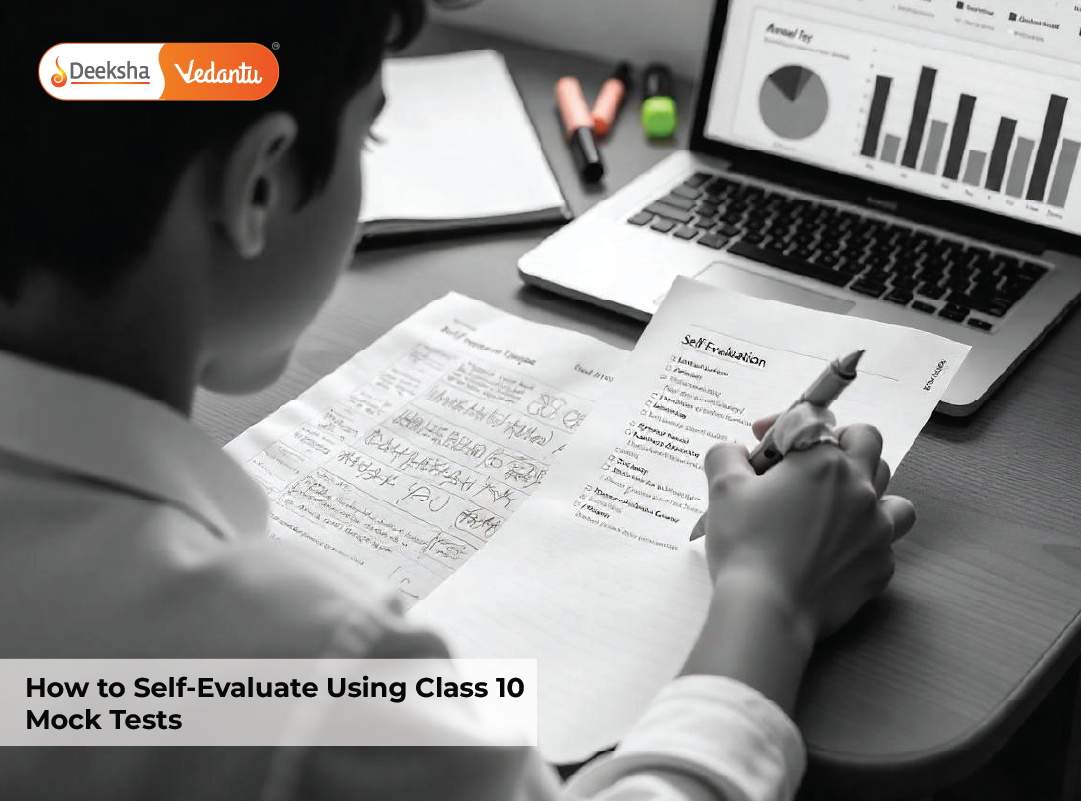






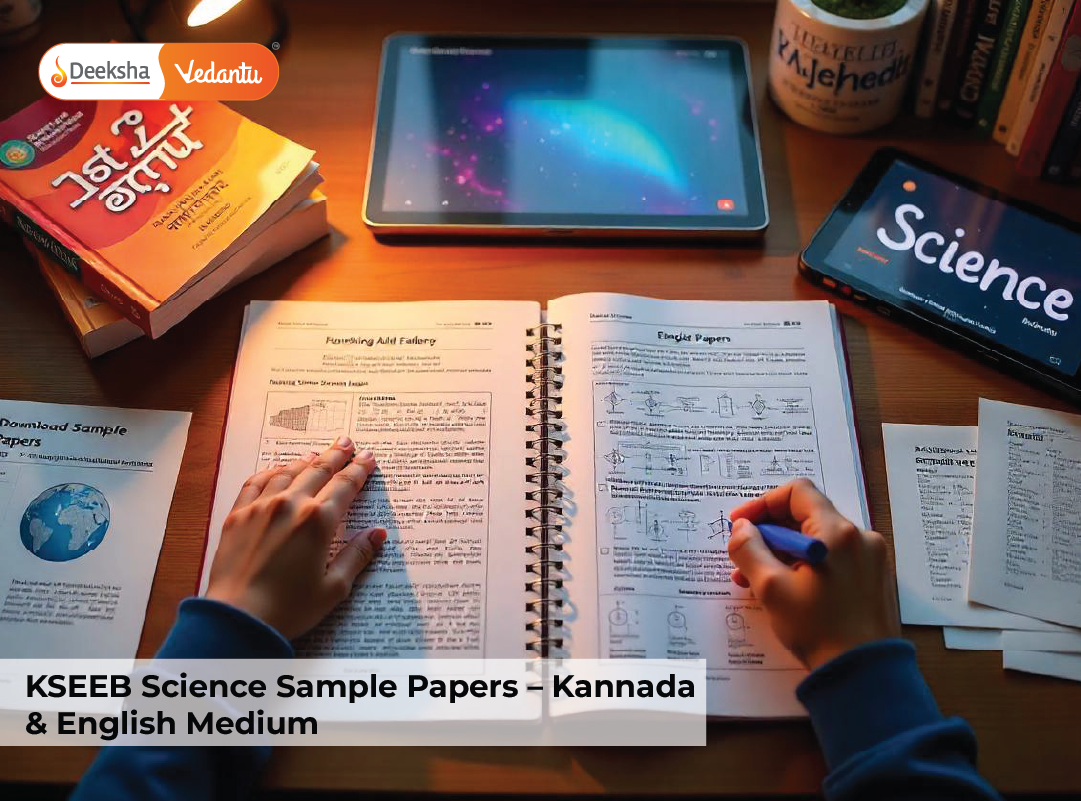
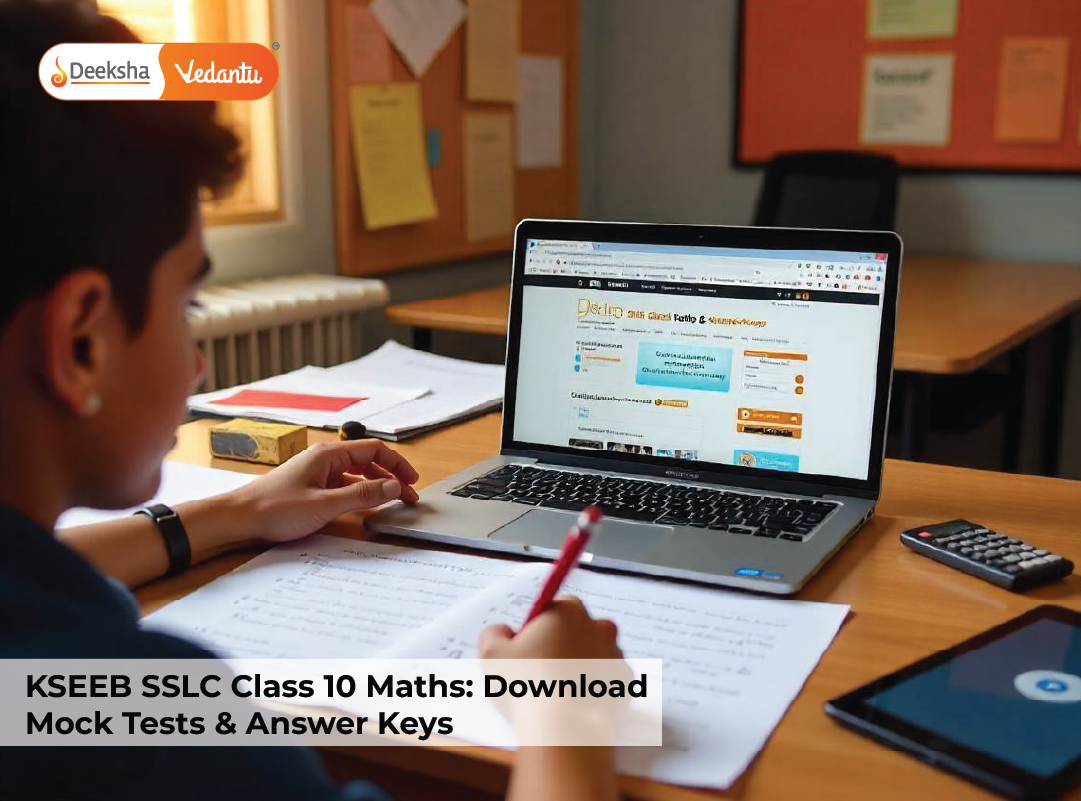
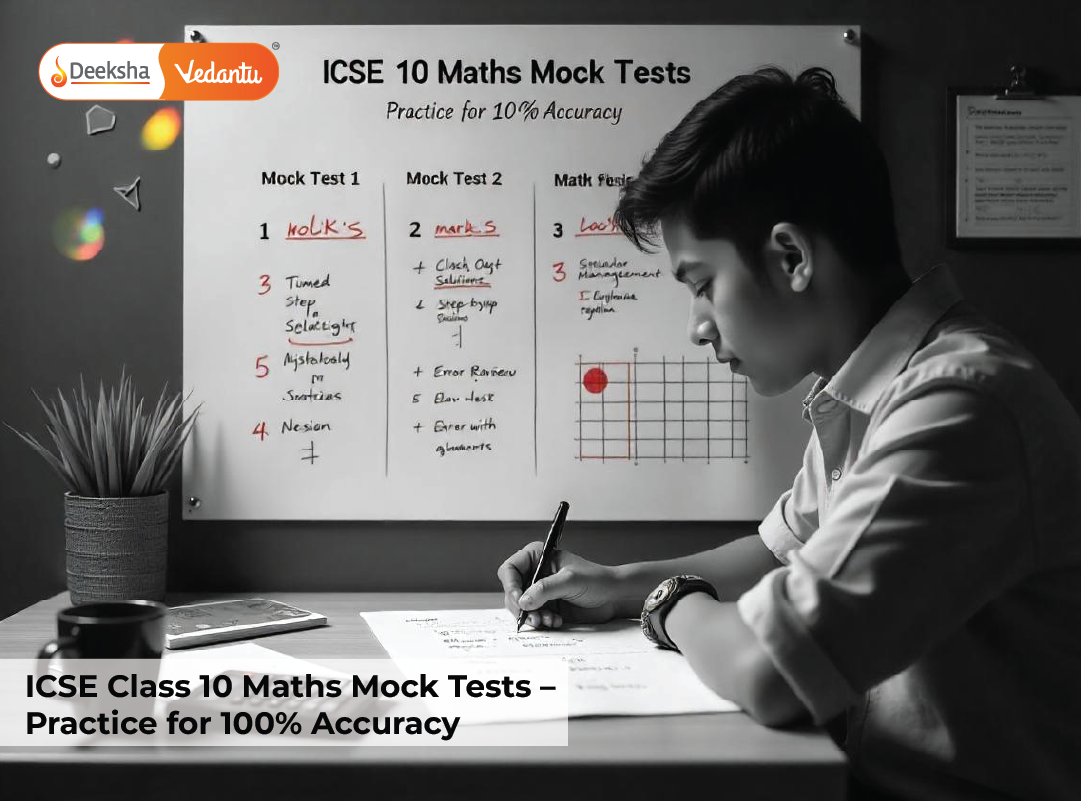
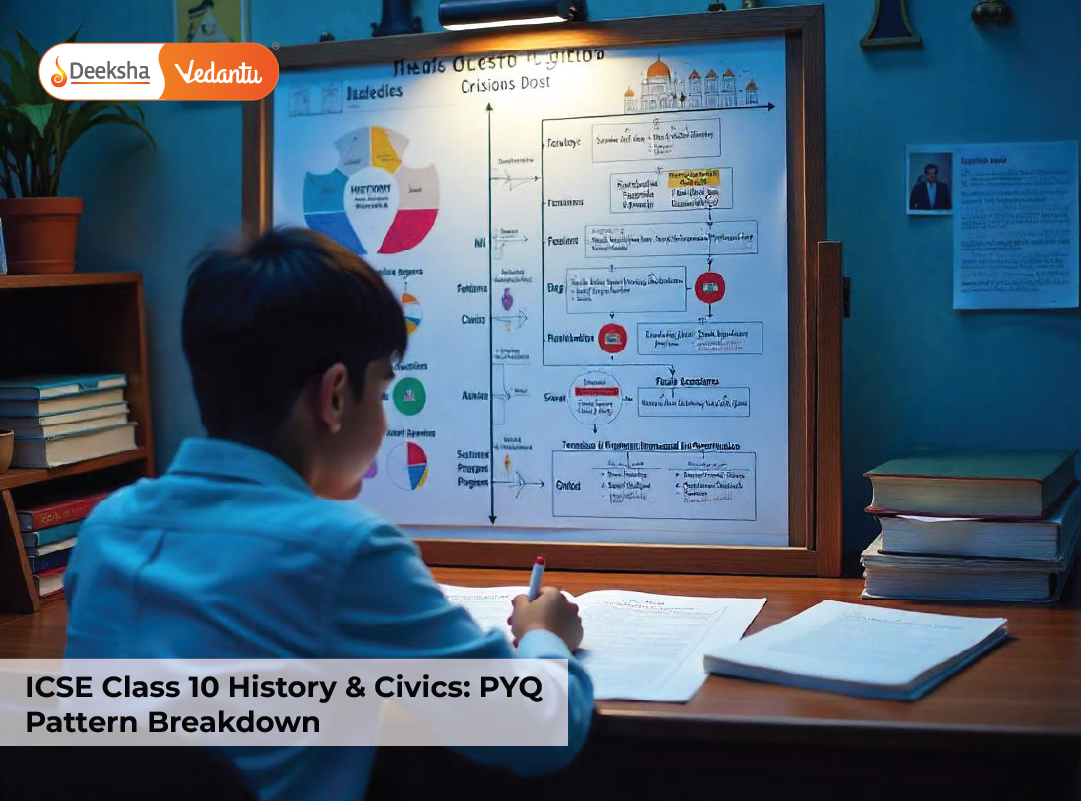


Get Social